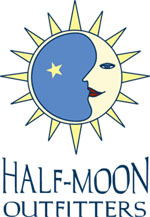Rodale Inc., the magazine and book publisher that popularized organic gardening and personal fitness, has been saved.
Either that, or it has been destroyed.
At least everybody agrees on one thing: The last few years have shaken up Rodale’s headquarters in Emmaus, Pa., as the family-owned publisher has struggled to balance its crunchy-granola roots — and its founders money-isnt-everything spirit — with the need to impress New York advertising buyers and boost the bottom line.
Earlier this month, chief executive officer Steve Murphy got a little vindication after the turmoil, in a memo to employees on Rodale’s 2002 performance.
The company’s Men’s Health magazine surged in advertising revenue and circulation, reversing recent declines. Runner’s World had the highest ad revenue in its history. Prevention passed rival Reader’s Digest in advertising pages, and Rodale’s Scuba Diving put its competition, Skin Diver, out of business.
Most important, the privately held company confirmed separately, it made more than $20 million in profit in 2002, after losses in 1999 and 2000 that threatened its survival.
But the changes made to get back into the black were severe — and have left scars.
In what amounted to a management purge, more than 25 top executives and editors were fired or have left in recent years, mostly veterans who led the company to its most prosperous era in the early and mid-1990s.
The company also had its first major layoffs about a month after Sept. 11, 2001, dismissing 150 workers in Emmaus during a time it was hiring high-paid executives in New York.
Something was left behind in the turnaround drive, many believe, in Rodale’s quest to scrape the compost off its work boots and trade up to Prada shoes. Nearly 30 people who have worked for Rodale were interviewed for this article, and many said that it was not the same place that J.I. Rodale and his son, Bob, built to save the world.
“The culture has changed a great deal,” said Mike Lafavore, who left Rodale in 2000 after making Men’s Health a powerhouse in the 1990s. He is now editor of TV Guide. “I couldnt begin to tell you how wonderful and old-fashioned the little time warp was that we lived in.”
“Then came the regime change,” said Mark Remy, a running enthusiast who quit Runner’s World in 2000. “Consultants, platoons of new VPs, memos, marketing jargon.”
Mike McGrath, the cheery host of a radio gardening show, turned wistful at the Philadelphia Flower Show last month considering the company where he wrote a book about Third World famine prevention with the late Bob Rodale and where he edited Organic Gardening until 1997.
“A lot of people would tell you the company doesnt exist anymore,” he said.
Countered CEO Murphy: “These are the good old days for Rodale right now.”
Rodale is among the last of a dying breed: a medium-size, independent media company, based in the middle of nowhere, that competes with the big boys. Founder J.I. Rodale, born Jerome Irving Cohen, was a health maven who wrote plays vilifying candy and cigarettes and — before anyone else cared much — linked healthy soil with healthy people. He pioneered the natural-food movement.
He moved from New York to Emmaus, near Allentown, in 1930, and then launched Organic Farming and Gardening magazine in 1942 and Prevention in 1950.
J.I. Rodale died in 1971 while appearing on Dick Cavett’s television show, minutes after joking, “I expect to live on and on… . Im full of energy.” He was 72.
His son, Bob, who was a 1968 Olympic skeet-shooter, added fitness to the mix, starting Backpacker and Runner’s World and buying Bicycling magazine. Rodale rode the fitness craze, growing from about $50 million in revenue to more than $200 million by 1990. Bob Rodale built an extraordinary direct-mail operation to sell the company’s publications.
He also traveled to the poorest nations in Africa, teaching families to grow foods that would defy drought.
“Bob wanted the company to make enough money to let him save the world,” Lafavore said.
Rodale’s campus in Emmaus, meanwhile, grew into a patch of Eden for employees. Rodale was one of the first companies to subsidize employee fitness and ban smoking. Workers grew organic vegetables in community gardens and dropped off children at on-site child care.
Employees trekked to Emmaus less to make it big in publishing — or earn big salaries — than to share enthusiasms. Backpacker employees backpacked; Bicycling staffers biked.
“When I got there,” McGrath recalled, “I was told that if you want to get ahead, you have to run.”
Bob Rodale died in a car accident in Moscow in 1990, on a trip to spread sustainable-farming programs. His widow, Ardie, became chairwoman; his right-hand man, Bob Teufel, took the reins as CEO. All went well for a while. Revenue would reach $450 million a year during the 90s.
Men’s Health, launched in 1988, borrowed its beat from women’s magazines: anatomy, sex and psychology. By the mid-1990s, featuring its guy-with-unbelievable-abs on almost every cover, it was outselling men’s magazines Esquire and GQ. Doctors Book of Home Remedies, published in 1990, sold 11.5 million copies and brought in $100 million, maybe more.
“But we lost it all. They lost it all,” said Maria Rodale.
Bob Rodale, in his will, designated Maria, 41, the fourth of his five children, as heir to the chair. She became vice chairwoman in 1997. What ensued, by most accounts, was a tug-of-war between the managers who had taken control of Rodale and the Rodales who wanted it back.
“There were people who clearly did not give Maria the respect she demanded. They should not have underestimated her ambition,” Lafavore said. “It’s a family-owned company, and her name is Rodale.”
Maria Rodale said that the home remedies book “covered a lot of sins” in the book division, which built a costly operation trying to replicate its success, cranking out books based on marketing concepts rather than good editorial ideas. It wasnt working.
She said managers were making costly decisions without consulting the family.
“There was basically a complete lack of accountability,” she said. Rodale bought New Woman magazine in 1997 for about $20 million, then spent that much more before killing it. Rodale bought Abenaki Publishers, a publisher of fishing magazines “that was not a decision the family wanted,” she said. “It so happens that a lot of the top management loved to fish.”
Soon, they had more time to do it. Teufel retired in 2000, part of an executive exodus as Maria Rodale asserted control.
She calls hiring Murphy, a magazine executive from the Walt Disney Co., “the best decision we ever made.” Murphy has a base salary of about $600,000 with a bonus potentially making it around $1 million, according to a knowledgeable publishing executive. A Rodale representative would not confirm or deny the figure.
Within the company, though, the 2000 arrival of the new CEO — who keeps his main office in New York — stirred resentment and intensified fears. Would he move Rodale to New York? Was it for sale? Would it go public?
The company consistently has said no, no, no.
Yet “there was always this monster that I think killed the company called New York envy,” said McGrath, who just launched a regional gardening magazine called People, Places and Plants.
That New York conflict got at the heart of Rodale’s dilemma. Its magazines had fiercely loyal readers, from elderly gardening buffs to obsessed bike jocks, but never won its share of ad dollars. “From the minute I got there, it was like, Advertisers wont take us seriously because were in Pennsylvania…. There was always this sense that the readers werent good enough. Theyre not what advertisers are looking for,” McGrath said.
Murphy realigned the company, killing the separate book division and giving each magazine control of its own “brand,” including its books. He cut costs, partly with the layoffs.
Some executives and editors who were replaced “didnt necessarily care about Runner’s World delivering x amount of profit to Rodale. They cared about it as an enthusiast would,” said Tom Beusse, who now heads the Men’s Health & Sports Group.
For example, sports purists rejected the idea of seeking car advertisements. That changed: Last year, half of Rodale’s ad growth was from automotive clients, and ads for sport-utility vehicles now dominate Backpacker, Runner’s World and Bicycling.
Men’s Health has been redesigned and its finances revived, and writers say the editorial quality at Rodale has improved.
“Ive been able to do long, nuanced stories for Bicycling and Men’s Health, while other men’s magazines are looking for shorter pieces,” said Steve Friedman, a New York freelancer who has written for them all.
And Emmaus has not gone New York. There is still a 75-acre farm with goats, where editors of OG (formerly Organic Gardening) test rototillers. Employees can exercise free at the “energy center” or contemplate in a room called a kiva. There is great child care, and turkeys and an extra week’s pay for the holidays.
Still, what drives the company financially is the same today as three, five, 10 years ago: Men’s Health, Prevention, Runner’s World, and mail-order health books. Rodale’s big books during Murphy’s tenure — The Wrinkle Cure, 8 Minutes in the Morning, and Dr. Shapiro’s Picture Perfect Weight Loss — have been by authors signed before he arrived.
The new management will need new success stories. Slim profits — $20 million-plus on $407 million in 2002 sales — leave little margin for mistakes.
A Men’s Health spin-off aimed at teenagers in 2000, MH-18, never flew. Rodale expands into celebrity memoirs this year with autobiographies of singer Chaka Khan and basketball star Oscar Robertson. It is peddling Norah Jones CDs at rodalemusic.com and developing reality-TV shows based on Men’s Health features.
Rodale in 2001 launched Organic Style, a bimonthly that takes J.I. Rodale’s term “organic” to new ground. Its current issue features Henri Bendel dresses, European travel, and — gasp — makeup.
“It’s not the literal translation of organic,” said Sara Levinson, new president of Rodale’s Women’s Publishing Group. “I had lunch with somebody yesterday who could have her picture in the dictionary as a potential Organic Style reader, and she said, Look, I want to wear Prada shoes, and I still want to live a healthy, authentic lifestyle.” ” The magazine isnt profitable yet.
Has Rodale been saved — or ruined? The honest answer may be neither.
“Rodale is certainly not what it was just a few years ago,” said Neil Wertheimer, a Rodale books vice president laid off in 2001. He is now an editor-in-chief at Reader’s Digest books.
“That’s not necessarily bad. I want them to succeed. What frustrates us who used to work there is the revisionist history. I think the current team has unfairly demonized the team that was in place before it. A lot of things were working… It was a beautiful thing we had in the 90s.”










